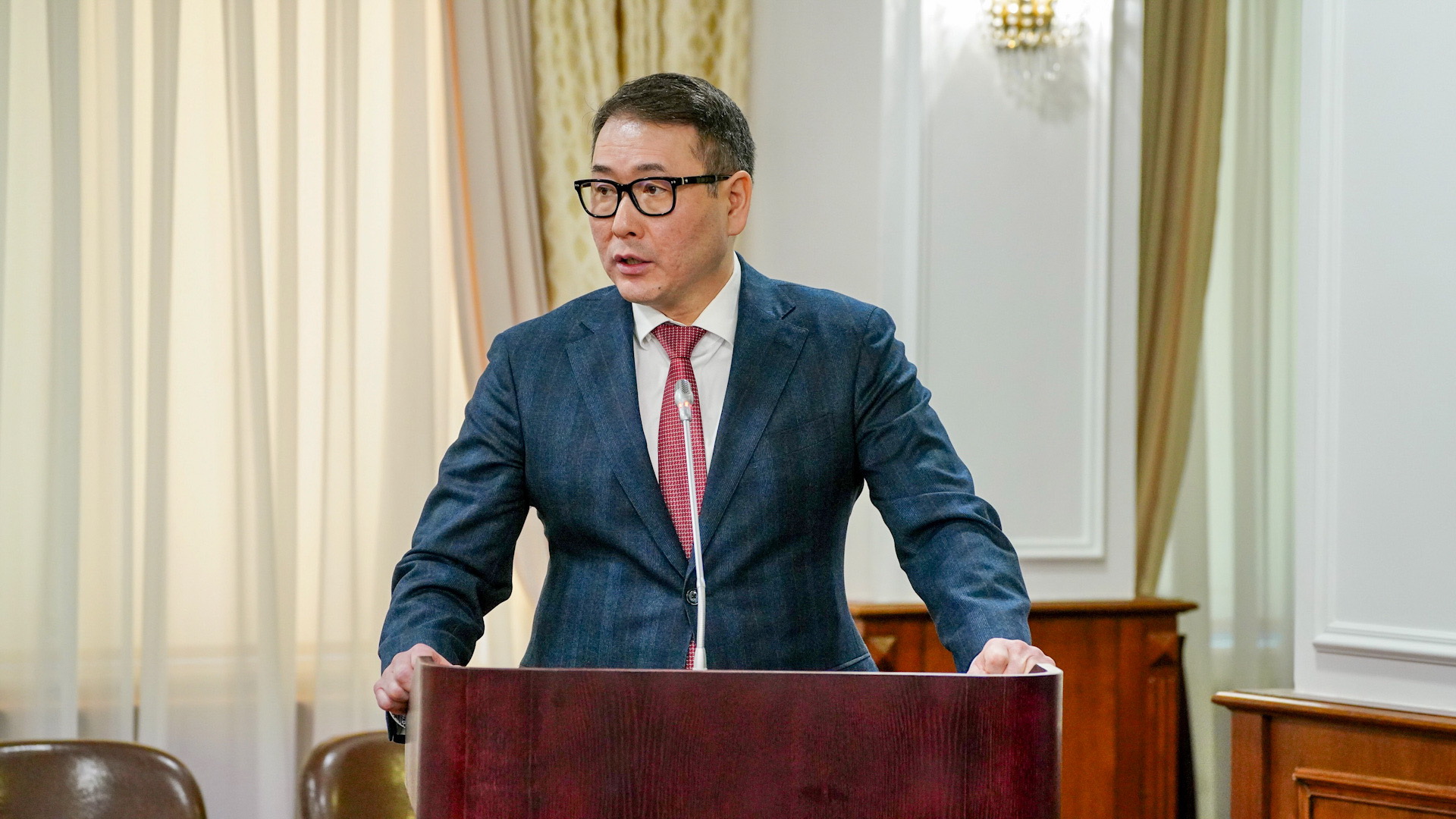16 January 2024, 15:05
 To provide comprehensive state support to SMEs, e-commerce training centers will be opened in all regions of the country. They are already operating in four western regions. This was announced at the Government session by the Minister of Trade and Integration of Kazakhstan Arman Shakkaliyev.
To provide comprehensive state support to SMEs, e-commerce training centers will be opened in all regions of the country. They are already operating in four western regions. This was announced at the Government session by the Minister of Trade and Integration of Kazakhstan Arman Shakkaliyev.
In e-commerce training centers Kazakhstani entrepreneurs will learn to register on marketplaces, promote their goods, build logistics. If there is an export potential, QazTrade and KazakhExport tools will be connected: this is the search for a counterpart, reimbursement of transportation costs, including insurance and financial measures, and others.
Arman Shakkaliyev noted that the global e-commerce market is growing at a faster pace and this sphere has become a new driver of world economic growth. According to the forecasts of international experts, by 2026 the global B2C e-market will amount to $8.2 trillion. According to estimates, in 2022 this figure has already amounted to $5.7 trillion.
"In Kazakhstan, by the end of 2022, the share of e-commerce reached 12.5% or about 2 trillion tenge. Household goods, clothing, footwear, food, cosmetics and pharmaceuticals are mainly sold via the Internet. E-commerce services in 2022 amounted to 1.2 trillion, of which 50.3% came from passenger transportation. For the first 11 months of 2023, e-commerce volume is estimated at about KZT2.2 trillion or 13% of retail volume. The share of e-commerce is expected to reach 13.2% by the end of the year," the minister said.
According to Arman Shakkaliev, the agency is currently facing the task of bringing the share of electronic commerce to 20% by 2030.
The head of the department dwelt in detail on the work done in the past year:
It was noted that special attention is paid to expanding the representation of domestic goods on marketplaces. Thus, on Clever Market a banner on Kazakhstani products was displayed with priority in the search results display.
National pavilions were opened on major Chinese marketplaces Alibaba and JD.com: 7500 goods are presented on Alibaba, 30 varieties on JD.com. More than 1.5 million Kazakhstanis are interested in this platform.
Two large Russian marketplaces - Ozon and Wildberries - operate in the country. Thus, as of the end of 2023, the number of registered Kazakh sellers on the Ozon platform reached 45,400, on the Wildberries platform - 55,704. Ozon launched 2 full-field sorting centers. In addition, 1189 points of order delivery were opened in almost all cities of the country. In turn, the Wildberries marketplace opened 6 logistics centers with a total area of 29,600 m2 and 621 points of order delivery. It is also planned to build two full-field centers in Astana and Almaty.
Kazakhstan signed memorandums with the relevant ministries of Uzbekistan and Tajikistan. The Minister reminded that in September last year in Almaty was held the first Central Asian e-commerce forum, which was attended by more than 300 participants from 6 countries. Last year a unified platform Central Asia Gateway was launched, which won the Digital Government Awards in the nomination "Best Trade Information Portal". The competition was held on the margins of the World Investment Forum in Abu Dhabi.
Also in Kazakhstan from January 1, 2023 for foreign companies engaged in electronic commerce and provision of services in electronic form, introduced the so-called Google tax (import tax). At the end of the year, 60 foreign companies underwent conditional registration, the amount of taxes paid by them amounted to 34.8 billion tenge.
One of the conditions for the development of e-commerce is the availability of warehousing and logistics infrastructure.
"As part of the fulfillment of the Head of State's instruction, by the end of 2024, it is planned to work together with the Chinese side on the creation of a regional warehouse infrastructure in Kazakhstan to stimulate cross-border electronic commerce. Also, the development of fullfillment centers and a network of bonded warehouses in the cities of Aktobe and Aktau will be continued. The opening of warehouses involves the placement of goods of large foreign marketplaces for further transit of goods from China to Europe and in the opposite direction. This will reduce the time of delivery of foreign goods to Kazakhstani buyers from 60 to 7 days," Shakkaliyev said.
The work on cooperation within the framework of international organizations continues. Today the goal is to increase trade turnover with the countries through electronic sales channels to more than $100 million annually. The opening of a joint CA pavilion on the world marketplaces for the realization of joint goods will also be worked out. Such as, for example, products of artisans under the brand "Nomads of Central Asia".
#Government session #Infrastructural development #Logistics #Ministry of Trade and Integration #Trade"To build a constructive dialog between the Ministry and business, a dialog platform is functioning on the platform of NPP "Atameken". It allows prompt and balanced decision-making on creating favorable conditions for the development of electronic commerce. In general, the above initiatives will give additional impetus to the development of e-commerce and will allow to achieve the planned indicators," the Minister summarized.
Stay updated about the events of the Prime minister and the Government of Kazakhstan - subscribe to the official Telegram channel
Subscribe